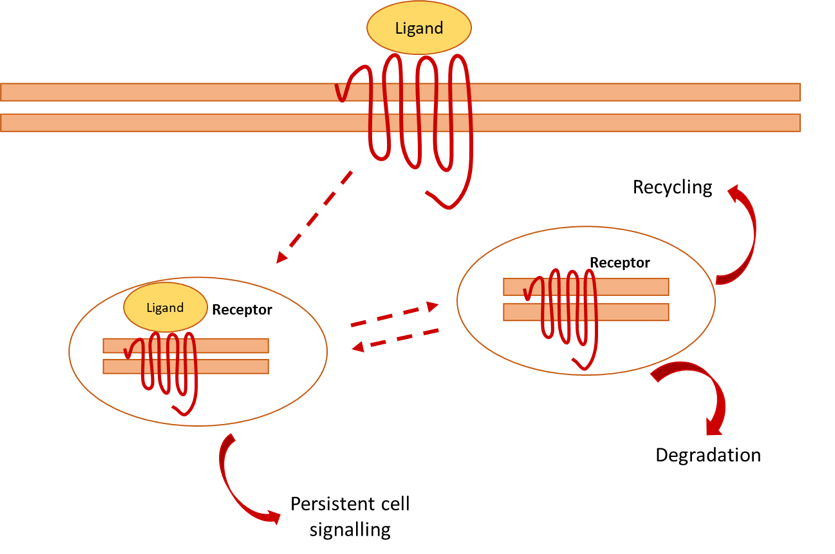ROLE OF GLYCOPROTEIN HORMONE-DEPENDENT ENDOSOMAL SIGNALING
ROLE OF GLYCOPROTEIN HORMONE-DEPENDENT ENDOSOMAL SIGNALING
Endosomes are vesicles which form from the cell membrane. They are fundamental for the recycling and the degradation of membrane proteins, involved in signaling, adhesion and turnover processes. Most G protein-coupled receptors (GPCRs) located on the cell surface, are subjected to endocytosis processes as well: after the binding to their ligand and the activation of intracellular signaling pathways, they are subjected to downregulation of the receptor by internalizing the receptor itself in endosomes. Those components can be routed toward the Trans-Golgi Network, the degradation in lysosomes or recycled back to the plasma membrane. Lately, several studies have demonstrated that the internalization of the receptors is a fundamental event which can lead either to a downregulation of the signaling or to the persistent and differential activation of the pathways. The follicle-stimulating hormone receptor (FSHR), the luteinizing hormone/choriogonadotropin receptor (LHCGR) and the G-protein coupled estrogen receptor (GPER) are known to undergo a process of internalization and recycling through endocytosis, but it is still widely unclear their intracellular routes and the signaling pathway they can activate from these cellular compartments. The discovery of the heterodimerization between FSHR, LHCGR and GPER, may suggest further outcomes and findings in the comprehension of these receptors function and activity in follicular physiology. Overall, this research project can lead to a better understanding of the role of gonadotropin receptors in the regulation of the ovarian physiology and in pathological conditions.


